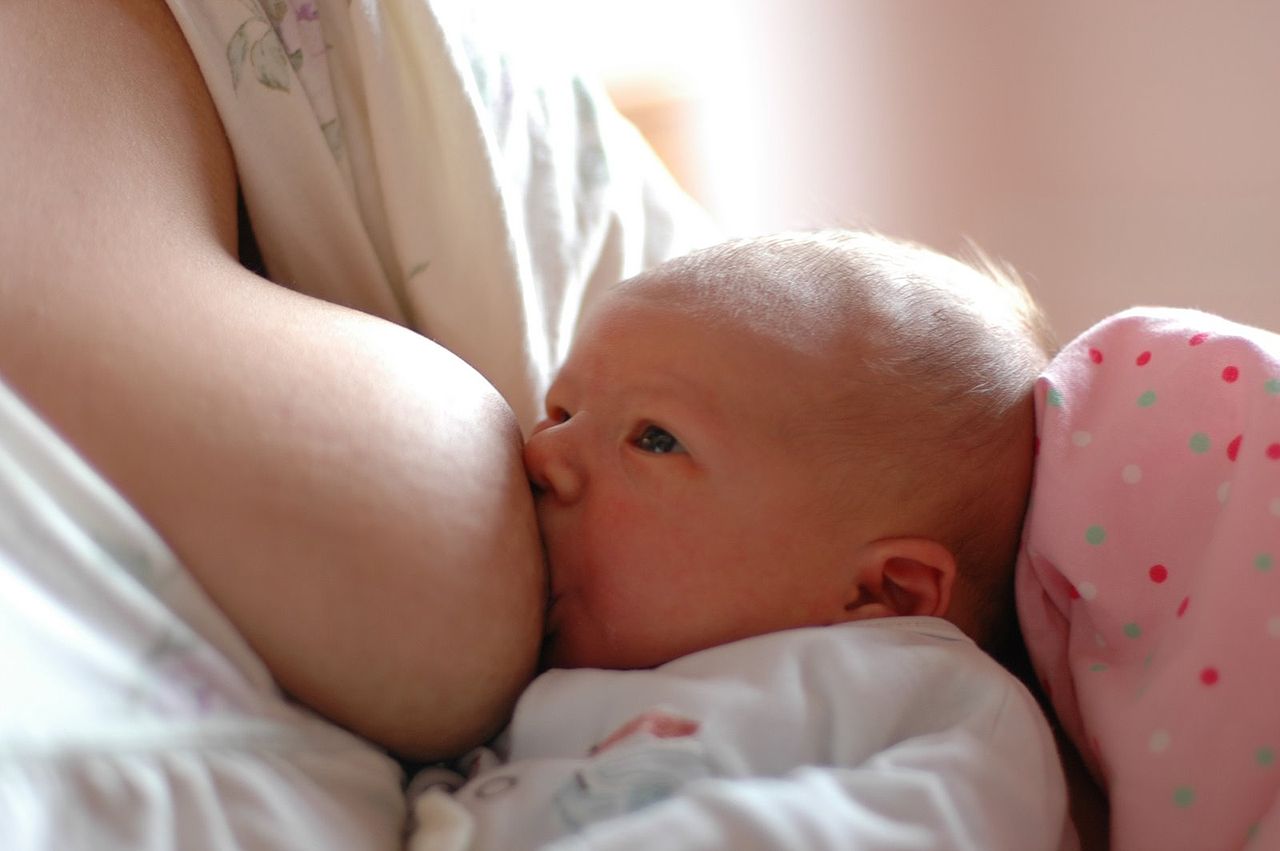Fed Is Best

You may have heard the expression ‘Breast is Best’. In fact if you are a mother, you can’t help but hear that mantra. Well, now there is a new mantra on the block, which I am personally thrilled about - ‘Fed is Best.’ While I am a strong advocate for breastfeeding when it is working well in both a physical and mental capacity for the individual family and it is there choice, I am also a strong advocate for ‘Fed is Best’ when breast feeding is not the right choice for the baby’s physical health or the mother’s physical and/or mental health.
What does 'Fed is Best' mean?
This slogan encapsulates the belief that all mothers should be supported in choosing safe feeding options for their baby, whether it’s breast, bottle or formula feeding. For me this includes parents being extensively educated on the best practices for all options.
Currently, and for many decades now there has been a strong focus on ‘Breast is Best’ and while this is of course true and the teaching has a wealth of good intention with it, it is also often attached to a worldwide policy that most hospitals, midwives, parenting organisations and lactation consultants have to, or choose to, sign up to. This policy is called the Baby Friendly Hospital Initiative (BFHI).
The BFHI programme encourages hospitals and health care facilities - particularly maternity wards - to adopt practices that fully protect, promote and support exclusive breastfeeding from birth.1 Exclusive being the optimum word here. To become recognised as a BFHI institute the maternity service must care for a newborn according to these ‘Ten Steps’.
- have a written breastfeeding policy that is routinely communicated to all health care staff
- train all health care staff in skills necessary to implement this policy
- inform all pregnant women about the benefits and management of breastfeeding
- help mothers initiate breastfeeding within a half-hour of birth (this step is now interpreted as: Place babies in skin-to-skin contact with their mothers immediately following birth for at least an hour. Encourage mothers to recognise when their babies are ready to breastfeed, offering help if needed)
- show mothers how to breastfeed, and how to maintain lactation even if they should be separated from their infants
- give new born infants of breastfeeding mothers no food or drink other than breastmilk, unless medically indicated
- practise rooming-in - allow mothers and infants to remain together 24 hours a day
- encourage breastfeeding on demand
- give no artificial teats of pacifiers (also called dummies or soothers) to breastfeeding infants
- foster the establishment of breastfeeding support groups and refer mothers to them on discharge from the hospital
When we combine that word exclusive with rules 6 and 9 you are automatically in a system that will not talk about formula feeding. They will not offer you advice on bottle feeding and your baby has to be suffering a medical condition, or move into that category because of supply issues, before formula and bottle will be talked about and even then the parent has to sign a waiver form saying it was their choice to feed formula. All at a time of hormonal fluctuation and often huge disappointment from not being able to provide breastmilk, at that point, for their baby. To me this is a backward, outdated way to ‘support’ our mother’s toward breastfeeding, let alone support them through the often hard choice to offer formula, or move to formula completely. Not to mention just feed a bottle of expressed milk as the policy considers this as inappropriate to.
One must also point out though that Neonatal Intensive Care Units have a different policy than Maternity Wards. It's also fair to say that some midwives in the maternity wards are very supportive to the mothers that choose formula, but by-in-large this is often frowned upon and this extends beyond the hospital. As a speaker for one of our main postnatal providers in New Zealand I had a mother ask the question, 'When do I know when to change the teat size on the bottle for my baby?' Her baby was 4 weeks old. The answer she received from the provider, because of the BFHI was, 'I cannot help you with that.' To me this is shocking that a mother who is just trying to provide the best she can for her baby is not provided the advice she needs. I went on to give her that advice as I have chosen not to sign up to the BFHI.
Currently, there is a rapidly growing number of health professionals and practitioners, including myself, that are starting to openly talk about the mental and physical effects that the BFHI policy can create. One such research paper published in 2016 that investigated the ‘Interventions Intended to Support Breastfeeding, Updated Assessment of Benefit and Harms’ stated, ‘Using clinical judgement individualised for each mother and infant may result in better outcomes, than following a rigid system of practice. Any intervention, no matter how well-intentioned carries a risk of adverse effects.’2 Some of these effects may include jaundice, dehydration and in some cases death.
Another factor is dramatic weight loss. We are widely taught that ‘it is normal for a baby to lose 10% of their weight after birth’ and this is true to a degree because they have fluid retention. However, according to a Dr Brian Symon, ‘the hospitalisation of newborns for jaundice and dehydration caused by lack of food in those early days has steadily increased and are now the leading cause of newborn hospitalisation worldwide.

But before the WHO/UNICEF Baby-Friendly exclusive guidelines were implemented, these numbers were low because a large proportion of countries culturally accepted wet nurses, or openly accepted supplement feeding in those first few days until the mother’s milk came in.’3
As a mother that could not supply enough breast milk for my son because supply issues ran in our family, and as a postnatal practitioner working with mothers, I have a great appreciation of the struggle that can come from making the choice to turn to bottle or formula feeding. Breastfeeding is taught as the ‘ideal way to be a good mother’, which has the connotation that if you don’t do this you are not providing your child the ideal and you have failed. Such a depleting message at a time when our mother's need and deserve to feel empowered.
During consultations I have parents cautiously mentioning that they might want to start formula. Sometimes you can see, hear and feel their trepidation on what my response may be. The relief on their face when I say, ‘if that’s what you want to do then let’s look at the best way to do this for you and baby’ can be immense. I often feel such sadness at this time that they have been made to feel this way when they are only trying to provide what they consider is the best for their family, which is ultimately their choice. No one else’s.
I’ll share a little story with you about one of these instances. A mother I recently helped whom had persevered greatly with breastfeeding - like a lot of us do (I couldn’t supply enough for my wee man and had to turn to formula). She pumped and fed at all hours with the drive to feed her baby breast milk. I of course supported her in her wish, prescribing many herbal remedies that had proven there worth in my career, trying all we could for her to do that. But after many attempts, and an ever increasing stress load because of this wish, she decided to move to formula. Her words at the time of this decision still bring a lump to my throat. With sadness in her tone she said…
'I just wanted to give him the ideal.' I replied, 'But you still are. Breastfeeding is not always the ideal when we look at the whole picture for each family. Sometimes letting go of that taught 'ideal' is the most ideal thing.' She said, ‘Gosh that needs to be shouted from the roof tops!' This is a little of my shouting on her behalf.
I’ll finish by saying that I believe Fed is Best, and whichever way this is safely achieved it needs to be an informed decision that supports the physical and mental aspects of the family dyad, along with their choice.
- https://www.babyfriendly.org.nz/going-baby-friendly/baby-friendly-hospital-initiative-bfhi/
- http://jamanetwork.com/journals/jama/article-abstract/2571222
- https://fedisbest.org/2017/03/dr-brian-symon-words-advice-early-supplemented-breastfeeding-full-milk-production/


